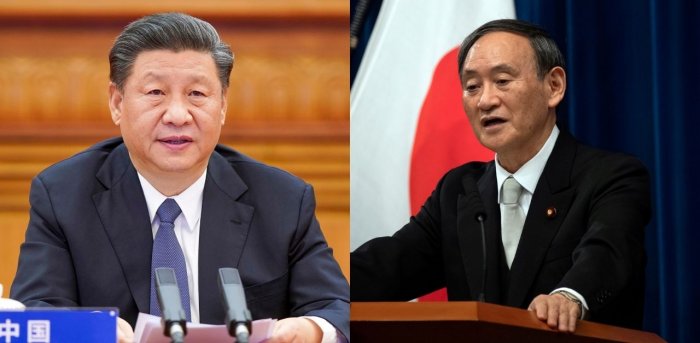According to Japanese media, Tokyo is admitting for the first time that Taiwan’s security is critical to the safety of both Japan and international society, citing the leaked material of the country’s defence white paper draft.
According to Sankei Shimbun, the draft analysed rivalry between the US and China, especially in the areas of politics, economy, and military, and singled out military activities in the South China Sea. Changes in the region’s military power balance could jeopardise peace and stability, according to the Japanese newspaper, which also stated that the draft indicated that Japan’s security concerns about China had grown.
In July, the Tokyo Cabinet will receive the defence white paper for 2021. The draft’s emphasis on Taiwan, according to Sankei, stems from a joint statement released by Japan’s and the United States’ leaders in April, which observers said was the first time the two countries had discussed Taiwan and stressed cross-strait peace in 52 years.
According to Sankei, the draught document emphasised that the balance of cross-strait military strength appeared to favour mainland China and that this difference was widening. It was important for Japan to pay attention to future US moves on Taiwanese weapons sales.
The Chinese coast guard’s repeated patrols around the disputed Senkaku Islands, which China refers to as the Diaoyu Islands, were also a source of great concern in Tokyo, according to the draft. According to the study, China’s passage of maritime law in January specifically authorising its coast guard to fire on foreign vessels violated international law.
According to the draft, China was also attempting to procure advanced military equipment from other nations, citing advice from observers. The document also stated that technology security was a critical problem.
In terms of international cooperation, the draft stated that Japan will continue to collaborate with Australia, the United States, and India in order to create a free and open Indo-Pacific.
In response to the leaked material, China’s official mouthpiece, the Global Times, said Japan was “overreaching.” Global Times quoted Ministry of National Defense spokesperson Wu Qian as saying that the Tokyo government was spreading the idea of a so-called Chinese military threat, maliciously targeting Beijing and deliberately intervening in China’s internal affairs.
Read More: The Japanese Prime Minister came to the US and successfully made Biden follow Trump’s Taiwan policy
The Inclusion of Taiwan and the underlined importance given to the island shows the level of commitment Japan has given Taipei. Though this is not the first time Japan has sounded out the importance of Taiwan and voiced concerns for its security.
In March this year, according to Japanese government sources, Japanese and US defence chiefs decided in a meeting in Tokyo to work closely together in the event of a military conflict between China and Taiwan. Given China’s continued refusal to accept and respect Japan’s sovereign territories and seas, the country no longer appears to be on the defensive. China is now up against a brave and confident Japan, which will not only defend itself aggressively but will also check any aggressive overreach by the CCP, even in Taiwan.
The ever-present threat of a Chinese takeover of the island has become more ominous. Chinese Premier Li Keqiang issued a statement in which he reiterated the age-old danger of focusing on China’s “reunification” as the ultimate target. The Premier was speaking at the opening of China’s parliament’s annual meeting.
In such a scenario, a strong statement by Japan that in the event of any Chinese adventurism against Taiwan, Tokyo will provide maximum military and other forms of support will go a long way.








